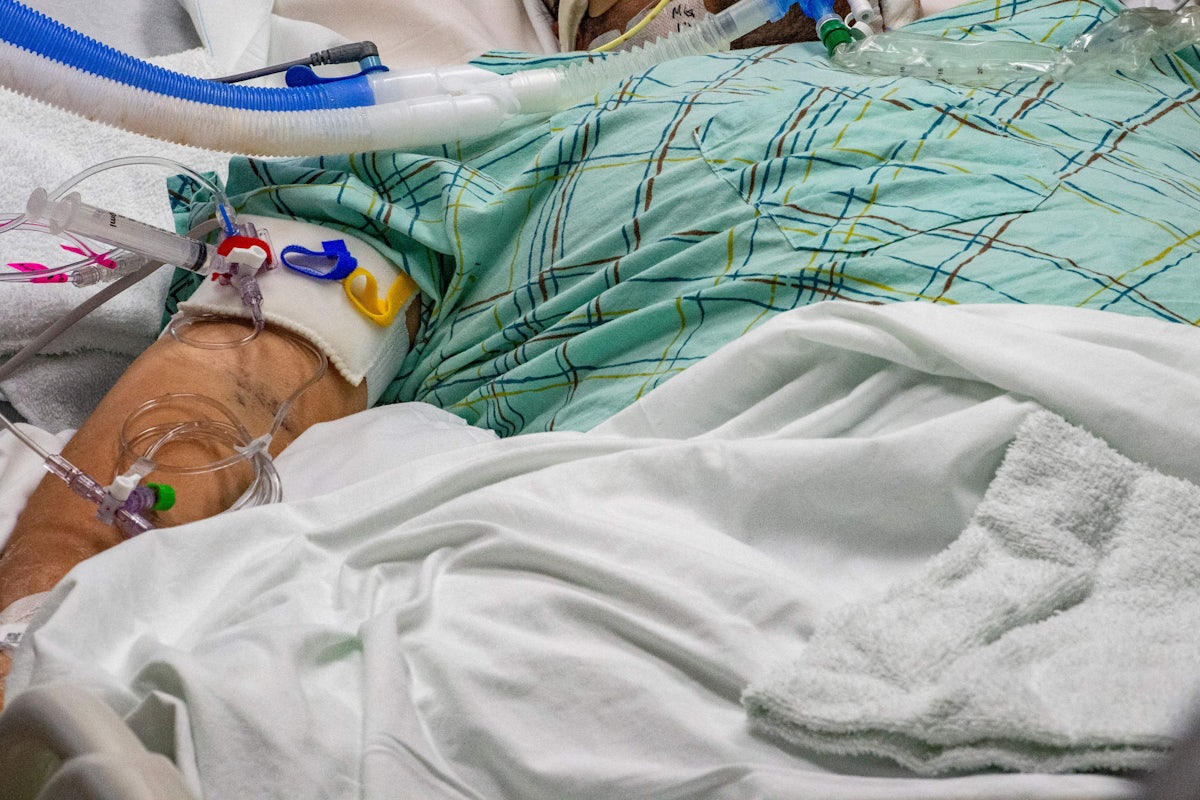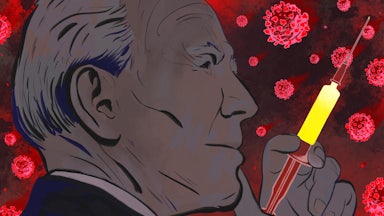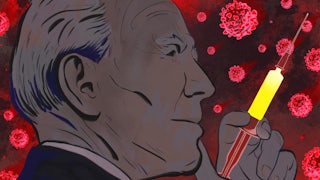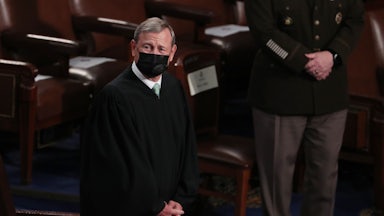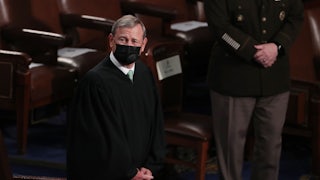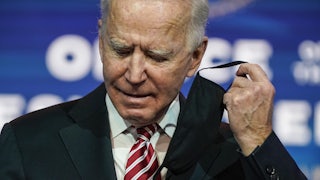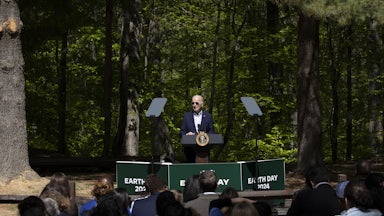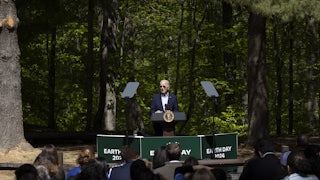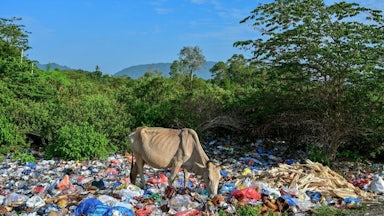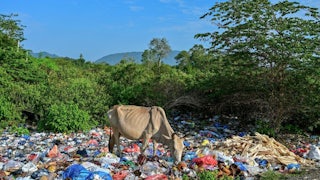There is a movement afoot just as insidious as right-wingers refusing to wear masks and get vaccinated. It’s progressives who are fully vaccinated but whose overcautious attitude toward Covid-19 is harming a generation of children and preventing society from getting over the pandemic.
Or so posits David Leonhardt, a journalist at The New York Times who has written about this phenomenon in his newsletter and appeared on the Times podcast The Daily on Wednesday—the day after more than 3,100 Americans died of Covid-19—to discuss the alarming trend of liberals who just won’t quit Covid. The fact that poll respondents who are fully vaccinated and boosted seem more worried about getting sick, Leonhardt wrote this week, suggests “both political tribes really do seem to be struggling to read the evidence objectively. As a result, the country is suffering thousands of preventable deaths every week while also accepting a preventable crisis of isolation that’s falling particularly hard on children.”
Leonhardt isn’t the only pundit or journalist to lean on false equivalency recently, or to fail to grasp the ethical problems with simply letting the virus rip now that some people are vaccinated. Other publications have also elevated voices with varying degrees of expertise who question the wisdom of masking in schools or vaccinating kids or offering flexible school options. Nate Silver compared schools closing due to staff shortages to the invasion of Iraq. When Bari Weiss appeared on the Bill Maher show last Friday, on a day more than 3,400 new deaths were reported, to announce she was personally “done” with Covid, she received supportive applause from the audience.
The through line in all these examples is the belief that, since the average vaccinated person’s risk, or the average child’s risk, of dying from Covid is low, it is irrational—even dangerous—for vaccinated people to modify their and their children’s behavior to avoid contracting the disease. This argument contains glaring omissions.
In pieces like these, there is typically little or no discussion of the actual reasons people may be concerned about getting sick. Not everyone is worried about their personal demise. They may instead be worried about spreading the virus to elderly or immunocompromised people or to children who aren’t eligible or allowed to get vaccinated, or they may be concerned about overwhelming hospitals, developing a “mild” course of Covid that nevertheless leads to long-term illness or disability, missing work while sick, losing childcare after they or their kids test positive, or falling behind in school. The choice isn’t a binary between being afraid for one’s own personal safety or carrying on. Mass death isn’t inevitable; being concerned about the vulnerable or the course of the pandemic as whole isn’t pathological.
The poll Leonhardt commissioned of some 4,400 Americans found ideological splits. “Older Republicans are significantly less worried about getting sick than younger Democrats,” Leonhardt said on the podcast, leading him to believe “people’s attitudes toward risk doesn’t seem to be driven by rational thought or scientific evidence so much as it seems to be driven by political belief.”
According to Leonhardt, because omicron is pretty mild—he likens it to the flu—in healthy, boosted people, it’s time to start treating Covid like any other respiratory illness. Right now, people are overfocused on Covid, he argues: “They’re not thinking ooh, this morning when I get up, there’s a small risk that I might choke, there’s a small risk that I might be in a car accident,” he said on The Daily podcast. “They are focusing overwhelmingly on this tiny Covid risk.” He acknowledged only in passing that omicron “can be rough” on “a small number of people who are immunocompromised or very elderly.”
While worrying about getting others sick is “admirable,” Leonhardt said, “those other people have also had the opportunity to get vaccinated.” He worries that pandemic restrictions are the reason behind a rise in violent crime and overdoses, even though the United States hasn’t seen anything approaching lockdowns since spring 2020 and many places saw no restrictions at all.
Leonhardt is working from two data pools here—his poll and the extremely limited statistics on deaths from Covid in vaccinated and boosted populations. But his interpretation of the data misses a few key points. Not everyone who is at risk even after their initial vaccination knows that they need a booster shot, and there is a strong correlation between vaccination status and income and health insurance status. A “mild” illness still has repercussions beyond hospitalization and death. And even when you’re vaccinated, you may still pass the virus on to others.
“By drawing on this (incorrect) personal responsibility argument, he makes the deaths and suffering of those affected seem acceptable,” Dr. Cecília Tomori, director of global public health and community health at the Johns Hopkins School of Nursing, wrote to me when I asked her about the podcast. “Disturbingly, at one point he highlighted that really only the immunocompromised and elderly are not fully protected after vaccination—as if the impacts on these people were acceptable. That is a eugenic argument.”
In this formulation, fear is holding us back, not the virus that has killed nearly a million of our friends and loved ones. This is a pretty offensive thesis at face value. There’s also not much evidence that fear is holding us back. In fact, the U.S. has largely taken the approach many are arguing for: simply letting go and allowing the virus to circulate. This is precisely the strategy that has led to the waves of cases that in turn created the current restrictions pundits dislike—schools and restaurants closing due to worker shortages, not to mention hospitals and nursing homes stretched to or beyond their breaking points.
“We’re being held hostage by the virus and our lack of political will to control it, not mitigation strategies,” Anne Sosin, a public policy fellow at Dartmouth College focusing on health equity, told me. “Countries that have had a coherent plan for managing the pandemic have not only far fewer deaths but have also experienced much less disruption.”
To a certain extent, pieces castigating the vaccinated for their caution are the natural result of a culture that perceives health as a matter of individual risk. “We’re so used to health being something that’s about our bodies,” Dr. Richard Carpiano, a professor of public policy at University of California, Riverside, told me. “Wherever you fall in the political spectrum, left or right, there’s often the belief and argument that it’s my body, it’s my health, and therefore it’s my decision-making.” This belief has flourished in the past hundred years, even—or especially—during the HIV pandemic. “We’re used to things like cancer, heart disease, diabetes, stroke, and even injuries as the things that kill us,” Carpiano said. “We’re not used to this idea where our behaviors can have an impact on other people.”
Media can amplify such messages about risk being a matter of personal choice, Sosin said. “The narrative focuses on individual risk, which we know is, for most people, lower with omicron, over collective risk, which continues to be high.” Positions like this “erode the political will to address the wide range of reasons why people remain unvaccinated,” Sosin said—and it reduces our empathy for those who have been targeted by vast misinformation campaigns and seem to be refusing to play by the rules. That makes it even harder to reach those who need vaccination and other precautions the most.
Believing that you’ve done everything right, and that gives you a ticket out of the pandemic, has other troubling implications, Carpiano said. “Like I’ve worked up credit, and somehow now I can go out into the world and I’ve got these chips and I can cash them. No, you really can’t yet.” The virus can affect vital social functions, from schools and hospitals to grocery stores and airlines, without leaders ever declaring restrictions, he said, simply because too many people are too sick to work. And for now, our vaccination rates are still too low, some vaccinated people can still get very sick and die, and each new case offers the virus an opportunity to evolve into an even worse pathogen.
Allowing the virus to spread and infect those who aren’t yet vaccinated also has terrible repercussions for our health system—and for those who tried the best they could, like Katherine Jane Ripley, the 33-year-old breast cancer survivor in Idaho who died of a blood infection while waiting in the emergency department for an open bed. Try telling guilt-stricken children who brought the virus home to vulnerable relatives that most people are just fine.
Narratives that prioritize the risk levels of the most privileged fail “to understand that infectious disease inherently involves social interaction—we live and interact with people with different vaccination statuses and different (known and unknown) risks from infection,” Tomori said. People don’t make decisions based on theoretical individual risk—they make decisions in relation to one another, she said.
There are indeed “two Covid Americas,” but not in the way commentators like Leonhardt envision it. There are those who are still at genuine risk, and those who feel too inconvenienced to protect them. The former group have no choice but to take Covid seriously. The least the latter group could do is stop suggesting that those who value the vulnerable are pathologically silly.
